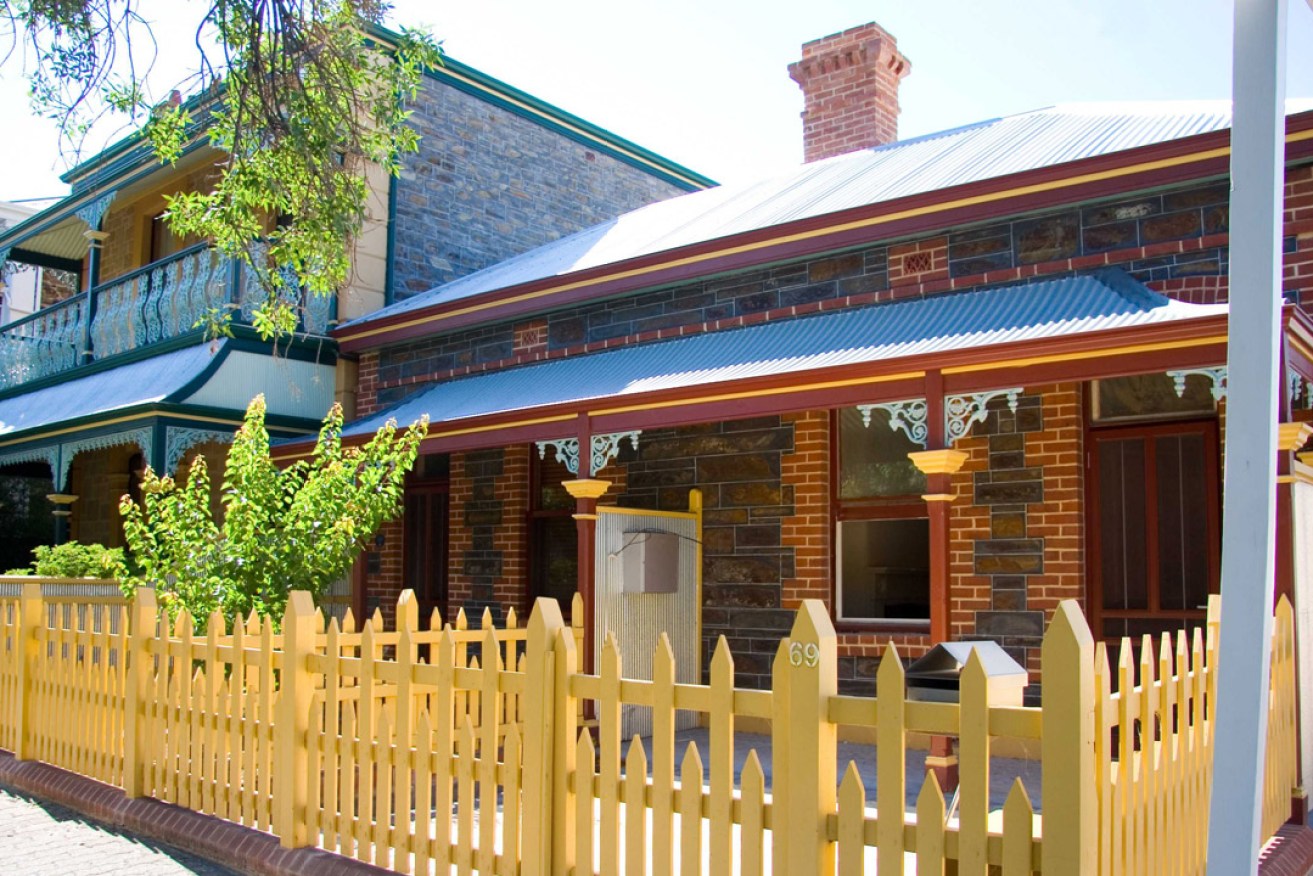All pre-1936 SA buildings ‘deserve heritage listing’
All South Australian buildings constructed during the first 100 years of European settlement should be granted automatic local heritage listing, the History Council of South Australia says.


Local heritage-listed buildings on Tynte Street, North Adelaide. Photo: Luke Carrangis.
The state’s peak history body has proposed a blanket local heritage listing for all buildings constructed between 1836 and 1936 in its submission to the State Government’s local heritage reform discussion paper.
The discussion paper infuriated heritage advocates earlier this year with the suggestion that local heritage places could be demolished ‘on merit’.
Historian and History Council immediate past president Susan Marsden told InDaily a blanket local heritage listing would protect the state’s colonial history and put the onus on developers to justify demolition and renovation.
She said the change would “streamline” the process, but also slow it down and cause developers and homeowners to “stop and think” before renovating or demolishing colonial architecture.
“Once and for all, we’d say: ‘Do we or don’t we think our colonial period buildings deserve protection?’” said Marsden.
“At the moment … every single place has to be argued and argued, and often it goes to court.
“People generally would think they [colonial buildings] are protected.”
Marsden conceded that while a blanket heritage listing would take in some “ugly” buildings, the majority of buildings constructed in the first 100 years of European settlement in South Australia were of high quality masonry.
“The aesthetics are in the eye of the beholder [however] South Australia … has the highest proportion of masonry buildings in Australia,” she said.
“There’s a real break in the character of construction in South Australia from the war (World War II) on.”
She said local heritage listing meant developers and homeowners have to go through a formal process to convince their local council that demolition or renovation is justified.
Marsden added that under current regulations, councils are responsible for conducting local heritage surveys in their jurisdictions, but around half of South Australia’s councils had not done so – another argument for a blanket listing, she said.
A government spokesperson told InDaily that all submissions to consultation on the discussion paper “will be considered and there will be further opportunity for consultation on any Bill”.
“As Planning Minister John Rau has repeatedly stated, the discussion paper on local heritage is exactly that – a discussion paper aimed at facilitating debate, not a policy statement.
“The paper was distributed to councils and interest groups and published on the DPTI website.”
You can access the discussion paper here.




